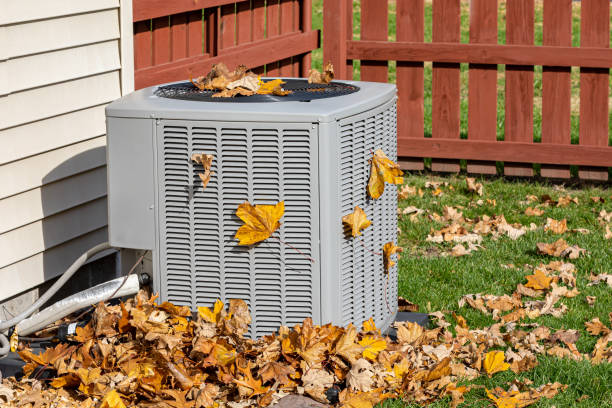Signs Your AC Needs a Recharge
Hey there! At Allen Norris HVAC, we know how crucial it is to keep your home cool and comfortable, especially during those hot summers here in Cumming, GA. One key player in your air conditioner’s performance is the refrigerant. It’s that magical cooling agent that makes sure you get that refreshing cool air. So, let’s dive into everything you need to know about refrigerants and how to keep your AC running smoothly.
Understanding AC Refrigerant

What is an AC Refrigerant?
Think of refrigerant as the lifeblood of your AC system. It’s what absorbs the heat from inside your home and releases it outside, keeping your living spaces nice and cool. Over the years, we’ve seen different types of refrigerants, with R-22 (also known as Freon) being a popular choice for older units, and R-410A being the eco-friendlier option in newer systems.
Evolution of Refrigerants
Refrigerants have come a long way! Initially, we had R-22, which did a fantastic job but wasn’t so kind to the environment. Nowadays, we use more environmentally friendly options like R-410A, which not only cool better but also help reduce our carbon footprint.
Signs Your AC May Need a Recharge
- Warm Air Flow: One of the biggest red flags that your AC might need a refrigerant recharge is if it’s blowing warm air. Imagine turning on your AC and feeling warm air instead of cool—total bummer, right? This usually means your system doesn’t have enough refrigerant to absorb the heat inside your home.
- Reduced Cooling Capacity: If you notice that your AC is working harder but not cooling your home as effectively, it could be due to low refrigerant levels. Weak airflow can also be a sign, but be sure to check and rule out other issues like a clogged filter before assuming it’s the refrigerant.
- Ice Buildup on Evaporator Coil: Seeing ice on your AC unit? Not good! Low refrigerant can cause the evaporator coil to get too cold, leading to ice buildup. If you spot this, it’s time to call in the pros before more serious damage occurs.
- Hissing or Bubbling Sounds: Strange noises coming from your AC? Hissing or bubbling sounds often indicate a refrigerant leak. Hissing suggests gas escaping, while bubbling means liquid is leaking. Either way, it’s a sign you need to get your refrigerant levels checked.
Do Home Air Conditioners Need Recharging?
- Central Air Conditioners: Your central AC’s refrigerant system is sealed and shouldn’t need recharging under normal conditions. However, if there’s a leak or damage, refrigerant levels can drop, and that’s when a recharge is necessary.
- Window Air Conditioners: Just like central units, window ACs have a closed refrigerant system. They shouldn’t need a recharge unless something goes wrong. Keep them well-maintained, and they can serve you well without needing frequent recharges.
How Often Should AC be Recharged?
Here’s the deal: unlike your car’s AC, your home air conditioner doesn’t need regular refrigerant top-ups. If everything’s in good shape, your AC should run its whole life without a recharge. But keep an eye out for those signs of leaks!
Professional vs. DIY Recharging
Sure, there are DIY kits out there, but handling refrigerants is tricky and potentially dangerous. It’s best left to professionals who know exactly what they’re doing and how to handle these chemicals safely.
Addressing Refrigerant Leaks
- Identifying Leaks Noticing warm air, ice buildup, or weird noises? These are your AC’s cries for help. Low refrigerant usually means there’s a leak somewhere. Shutting off your system and calling a professional is the best course of action.
- Repairing Leaks Our team at Allen Norris HVAC can inspect, find, and fix leaks, then recharge your system to get it back to peak performance. Regular maintenance can help prevent these issues, saving you from bigger headaches down the road.
Consequences of Ignoring Refrigerant Issues
- Impact on AC Performance and Efficiency Ignoring low refrigerant can lead to skyrocketing energy bills and overworked components. Your AC might start running all the time without effectively cooling your home, putting a strain on the system.
- Environmental and Health Concerns Leaking refrigerants aren’t just bad for your AC—they’re bad for the environment too. Some refrigerants can harm the ozone layer, and improper handling can pose health risks.
When to Replace Your AC Unit
If your AC is over 10-15 years old and facing frequent issues, it might be time to consider a replacement. Newer units are more efficient and use eco-friendlier refrigerants, making them a smart long-term investment.
Professional AC Maintenance and Repair Services
- Importance of Regular Maintenance: Regular check-ups can catch issues early and keep your AC running smoothly. Think of it like a health check for your system—spot problems before they become costly repairs.
- Choosing the Right HVAC Professionals: At Allen Norris HVAC, we pride ourselves on our expertise and customer satisfaction. With tons of positive reviews and a satisfaction guarantee, you can trust us to take care of your AC needs.
Tips to Maintain Your AC Unit
To wrap it up, keeping an eye on your AC’s refrigerant levels is key to maintaining a cool, comfortable home here in Cumming, GA. Regular maintenance and timely repairs can save you from expensive headaches and keep your system running efficiently. Need help with your AC? Give Allen Norris HVAC a call—we’re here to keep you cool!
Need An AC Recharge? We’re Ready To Help!
Ready to schedule a service or have questions? Reach out to Allen Norris HVAC today and let us help you with all your AC needs. Stay cool, Cumming!
For more tips and insights on maintaining your air conditioner, check out our other blogs on why it’s time to ditch Freon and how to plan and prepare for AC repair. Trust us, your AC will thank you!


